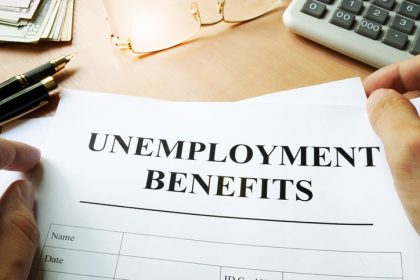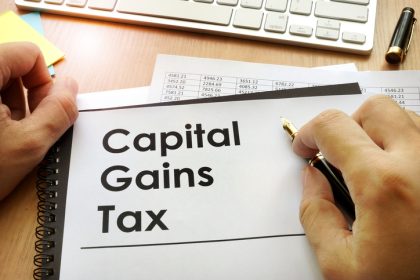This is a published version of our weekly Forbes Tax Breaks newsletter. You can sign-up to get Tax Breaks in your inbox here.
As 2024 came to a close, it refused to go quietly. Two significant court challenges were introduced at the end of the year with the potential to shake up the 2025 tax season.
First, as I reported in last week’s newsletter, the IRS published final regulations on information reporting obligations for certain DeFi participants (as a reminder, DeFi refers to peer-to-peer financial services on the blockchain). Almost immediately afterward, a lawsuit was filed in the Northern District of Texas, claiming violations of the Administrative Procedures Act (APA) and the Constitution. The constitutional challenges revolve around the privacy rights of participants and the due process rights of the regulated parties. The lawsuit also suggests that the IRS interpretations are an overreach and unwarranted. As I had noted, this was predictable–the final regulations appeared to try and preempt expected litigation over government powers curtailed under Loper Bright (a Supreme Court case focused on restricting the traditional judicial deference to federal agencies when interpreting statutes).
In another court challenge, the drama surrounding beneficial ownership information (BOI) reporting significantly ramped up this week. I previously wrote that the Corporate Transparency Act (CTA) could be headed to the U.S. Supreme Court–the first step in that process happened this week. On December 31, 2024, the Department of Justice filed an application with the nation’s highest court (☆) to put the brakes on the nationwide preliminary injunction that had barred the government from enforcing beneficial ownership information (BOI) reporting. If the DOJ’s request is granted, the government can enforce the CTA while appeals make their way through the system.
In the application for a stay of the injunction, the government argued that the Court “has traditionally applied a strong presumption that “Acts of Congress * * * should remain in effect pending a final decision on the merits by this Court.” If that sounds familiar, it’s similar to arguments the DOJ made to the Fifth Circuit, which initially granted (☆) the government’s request to stay the district court injunction.
(A stay is a court order that stops a legal proceeding—it’s usually temporary.)
The Supreme Court does not have to agree to hear the matter or answer the government’s application–though I expect it will take some action. We’ll have to wait and see.
The beginning of the year isn’t all about court cases–tax season is coming. As January begins, expect to see tax forms in the mail soon–including Forms 1099. Each Form 1099 is matched to your Social Security number, so the IRS can easily issue a tax bill if you fail to report one. If you don’t report it, expect a notice.
And while we often focus on what you need to report, don’t forget your tax credits and deductions (I’ve long suggested that most taxpayers under-deduct). Despite efforts by the IRS to educate taxpayers and streamline filing, a significant gap remains between what folks are eligible for and what they claim. Notably, the IRS found that taxpayers left money on the table with respect to three kinds of credits: the Earned Income Tax Credit (EITC), the child tax credit (CTC), and education credits including the American Opportunity Tax Credit and the Lifetime Learning Credit. According to IRS data, more than 470,000 taxpayers contributed to a $864 million estimated credit gap for the EITC, while 110,000 taxpayers contributed to a $133 million CTC credit gap. Most surprising for me? Education credits contributed to a whopping $6.3 billion estimated credit gap across six million taxpayers—clearly an area that requires significantly more attention.
(Don’t forget that the IRS has a Get Ready page on its website to help taxpayers prepare to file in 2025.)
With tax season gearing up soon (there’s still no official start date yet), the Volunteer Income Tax Assistance (VITA) and Tax Counseling for the Elderly (TCE) programs are currently recruiting volunteers across the country for the upcoming filing season. The VITA/TCE program offers free tax return preparation assistance for low-to moderate-income taxpayers, seniors, persons with disabilities, those with limited English proficiency, and Native Americans.
The IRS doesn’t require any experience for those hoping to become a VITA or TCE volunteer–you don’t even have to focus on preparing tax returns (available positions include interpreters, greeters, and computer specialists). And, importantly, free specialized training is provided by the IRS.
VITA impacts millions of taxpayers. During the 2024 filing season, the programs supported more than 9,000 VITA/TCE sites, with more than 72,000 volunteers. VITA/TCE sites prepared and filed over 2.7 million federal tax returns nationwide.
I wouldn’t tout the program if I didn’t believe in it. I previously volunteered at VITA sites in Philadelphia–and this year, I’m thrilled to share that I’ll be suiting up again (this time in my most serious winter gear) for a new pro bono project in a few weeks. I’m honored to join a handful of other tax attorneys as part of the Alaska VITA Project. It’s a project of the American Bar Association Tax Section in partnership with the Alaska Business Development Center (ABDC) to travel to Alaska and prepare tax returns for taxpayers living in remote parts of the state. Residents of these remote villages rely on VITA for free income tax return preparation. Last year, three Tax Section members traveled to the whaling village of Tikigaq (population 830) and to the hunting village of Atqasuk (population 276) to prepare returns for taxpayers residing there.
I could not be more excited. I plan to share some details from my trip as the season progresses. And while you might not be prepared to jump in a seaplane or climb aboard a snowmobile, you can make a difference in your community. I hope you’ll consider how you can help.
Enjoy your weekend,
Kelly Phillips Erb (Senior Writer, Tax)
Articles marked with (☆) are premium content and require you to log-in with your Forbes membership credentials. Not a subscriber yet? Click here to sign up.
Questions
This week, a reader asks:
I recently paid off a significant old tax debt to the IRS. Can I deduct it on my 2024 tax return?
So, first, kudos to you for resolving your tax debt. It can be stressful to owe the IRS money, and I’m sure you’re relieved to put that behind you.
That’s the good news.
The bad news is that you cannot claim the payment as a deduction on your 2024 tax return. That’s because federal income taxes are not deductible.
The answer might be different if you had paid delinquent state or local taxes. Assuming you itemize, you can deduct prior years’ state and local income taxes paid during the year on Schedule A. However, thanks to the Tax Cuts and Jobs Act, your deduction of state and local income, general sales, and property taxes is limited to a combined total deduction of $10,000 ($5,000 if married filing separately). That limit is scheduled to sunset at the end of 2025–you can find out more about potential changes in 2025 here. (☆)
—
Do you have a tax question or matter that you think we should cover in the next newsletter? We’d love to help if we can. Check out our guidelines and submit a question here.
Statistics, Charts, and Maps (Oh My!)
In 2023, the IRS estimated there could be up to 44 million Forms 1099-K sent to taxpayers. However, the official IRS projections—released in September 2024—suggested that the numbers were much smaller. That’s the result of delayed implementation of the $600 reporting threshold enacted under the American Rescue Plan of 2021.
For the last few years, Form 1099-K required reporting when payments totaled more than $20,000 and more than 200 transactions were settled through a third-party network (one that is settled through a third-party payment network, such as PayPal—think payment app or online marketplaces). No threshold applies to payment card transactions—payment cards include credit, debit, or stored value cards such as gift cards.
In November, the IRS announced (☆) that it will treat 2024 as an additional transition year (the IRS did the same for 2023). As a result, reporting will only be required if the taxpayer receives over $5,000, regardless of the number of transactions in 2024. The dollar value will scale to $2,500 for transactions in 2025 before hitting the $600 threshold in 2026 and after.
A Deeper Dive
What a year it was! 2024 ended on a frenzied note, thanks to a flurry of activity surrounding the beneficial ownership information (BOI) rules. With so many things happening at the end of the year, it’s easy to forget about some of the more memorable events that happened earlier–and there were a lot.
From a Supreme Court tax case that many thought could change the face of tax in the country to an influx of private equity in accounting, here are my picks for the top tax and accounting storylines of 2024. (☆)
In the most recent episode of Tax Notes Talk, Tax Notes reporters recap some of the most memorable stories they encountered in 2024, from “pig butchering” scams to a denied late-filing excuse citing Christmas stress. (Transcript available.)
Wondering what’s on tap for the next year? With many TJCA provisions expiring on December 31, 2025, taxpayers wonder how this will impact them. No one knows for sure yet, but based on what President-elect Trump and Republican leaders are saying, we have clues about what to expect.
I think that the 2025 tax year is likely to be anything but typical. There’s a new administration, a new Congress—and some of Trump’s 2017 tax cuts are set to expire. Here’s a guide. (☆)
Tax Filings And Deadlines
📅 February 3, 2025. Due date for individuals and businesses affected by Hurricanes Beryl and Debby (more info here (☆) and here (☆)), those in South Dakota affected by severe storms, straight-line winds and flooding that began on June 16, 2024, taxpayers in Puerto Rico affected by Tropical Storm Ernesto, and those individuals and businesses in Connecticut and New York affected by severe storms and flooding from torrential rainfalls that began on August 18, 2024.
📅 May 1, 2025. Due date for individuals and businesses in the entire states of Alabama, Georgia, North Carolina and South Carolina and parts of Florida, Tennessee and Virginia affected by severe storms and flooding from Hurricane Helene (☆) and Hurricane Milton.
📅 September 30, 2025. Due date for individuals and businesses impacted by recent terrorist attacks in Israel.
Tax Conferences And Events
📅 February 19-25, 2025. ABA Tax Section 2025 Midyear Tax Meeting. JW Marriott Los Angeles L.A. Registration required.
📅 May 13-14, 2025. National Association of Enrolled Agents 2025 Capitol Hill Fly-In, Washington, DC. Registration required (NAEA members only).
📅 July 21-23, 2025. National Association of Tax Professionals Taxposium 2025, Caesars Palace, Las Vegas. Registration required.
Trivia
Which U.S. state files the fewest individual federal income tax returns?
(A) Alaska
(B) Delaware
(C) North Dakota
(D) Wyoming
Find the answer at the bottom of this newsletter.
Positions And Guidance
The IRS issued proposed regulations to update the rules for certain tax professionals who can practice before the IRS—these rules are found in Treasury Department Circular 230.
Noteworthy
BeachFleischman PLLC, Arizona’s largest locally-owned public accounting firm, announced the promotion of Mikaela J. Knutson, CPA, to Principal. Knutson specializes in the construction industry and employee benefit plans. In addition to her client-facing work, Knutson plays a role in advancing the firm’s strategic initiatives, including driving technology adoption and enhancing operational processes firm-wide.
—
If you have career or industry news, submit it for consideration here or email me directly.
In Case You Missed It
Here’s what readers clicked through most often last week:
You can find the entire newsletter here.
Trivia Answer
The answer is (D) Wyoming.
According to IRS data from the 2021 tax year (the last year for which complete data is available), Wyoming taxpayers filed the fewest individual federal income tax returns. That should not come as too much of a surprise–Wyoming is our least populous state.
Feedback
How did we do? We’d love your feedback. If you have a suggestion for making the newsletter better, submit it here or email me directly.
Read the full article here
















